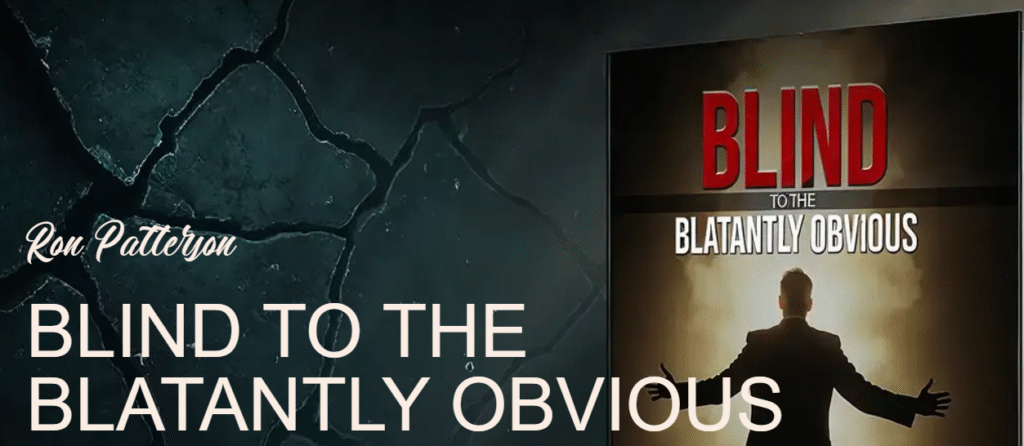In an age where technology can read brainwaves, decode genetic sequences, and send robots to other planets, one might expect science to be open to investigating the mysteries of consciousness and extrasensory perception (ESP). Yet, despite over a century of credible reports, experiments, and firsthand accounts, mainstream science continues to treat ESP—the ability to perceive information beyond the five senses—as a taboo topic. The reasons behind this fear reveal more than simple skepticism; they expose deep biases within the scientific establishment and a broader societal pattern of denying or dismissing truths that challenge established narratives.
The Scientific Fear of the Unexplainable
ESP has been studied since the late 19th century, from early telepathy experiments by the Society for Psychical Research to the famous Rhine studies at Duke University in the 1930s. In controlled environments, subjects appeared to demonstrate above-chance abilities to guess symbols, perceive distant objects, or influence random number generators. Yet, instead of curiosity, many of these studies were met with ridicule or outright rejection.
The root of this rejection lies not in lack of evidence but in a philosophical stance—materialism. Modern science operates under the assumption that consciousness is a byproduct of the brain, and nothing exists beyond measurable matter and energy. ESP, by its nature, implies that consciousness can transcend physical boundaries—an idea incompatible with materialist dogma.
Thus, to admit the possibility of ESP would force science to reconsider its most sacred foundation: that reality is purely physical and that subjective experiences have no causal power. To many scientists, this is intellectual heresy. It threatens not only professional credibility but the entire structure of belief that defines modern academia.
Replicability and the Double Standard
Critics often argue that ESP lacks consistent, replicable evidence. However, this argument ignores that many accepted scientific phenomena also show variability—from drug trials that produce different results in different populations to psychological experiments that fail to replicate in over half of attempts. Yet these inconsistencies do not lead to total dismissal.
The double standard is clear: when results support existing paradigms, variability is “normal science.” When they challenge those paradigms—as ESP does—it becomes “pseudoscience.”
Some researchers, like Dr. Dean Radin of the Institute of Noetic Sciences, have conducted meta-analyses of hundreds of ESP experiments showing statistically significant effects well beyond chance. Despite this, mainstream journals often refuse to publish such work, and scientists risk career damage for even discussing it. The fear is not of fraud, but of paradigm disruption.
The “Blind Spot” in Human Knowledge
Why is it so hard for science—and society—to accept data that point beyond its comfort zone? The answer lies in what philosopher Thomas Kuhn called “paradigm inertia.” Once a worldview becomes dominant, evidence that contradicts it is either ignored, rationalized, or suppressed until a crisis forces a shift.
This is not just a scientific problem—it’s a human one. History is filled with examples of society rejecting truths that were “blatantly obvious” in hindsight. Galileo’s heliocentric model was condemned by religious authorities. Germ theory was mocked by 19th-century physicians. Even the dangers of smoking were denied for decades despite overwhelming data.
Today, the denial has simply shifted from physical to psychological and spiritual frontiers. ESP and consciousness research threaten to blur the boundary between observer and observed, mind and matter. Such ideas are uncomfortable because they suggest we are not separate from the universe but deeply interconnected with it—perhaps even capable of influencing it in ways science cannot yet quantify.
Books That Expose Society’s Denial of the Obvious
Many books have explored this tendency of modern society to ignore or rationalize away evidence that doesn’t fit the dominant worldview. Titles like “The Denial of the Obvious”, “Blind to the Blatantly Obvious”, and “The Structure of Scientific Revolutions” remind us that progress often depends on confronting uncomfortable truths.
In “The Conscious Universe” by Dean Radin, for example, the author meticulously presents statistical data supporting ESP and explains why mainstream science refuses to engage with it. Similarly, Rupert Sheldrake’s “The Science Delusion” challenges the assumption that materialism is an unshakable scientific fact rather than a cultural belief.
Books about society ignoring obvious truths—whether about ESP, consciousness, or social systems—often highlight a shared theme: we cling to comfort, not truth. Humans, even the educated ones, prefer coherence to contradiction. We would rather dismiss inconvenient data than endure the cognitive dissonance of admitting we were wrong.
The Cultural Cost of Denial
The fear of ESP and the suppression of unconventional ideas come at a great cost. When society ridicules or censors exploration of consciousness, it limits human potential. Scientific progress depends not just on data, but on the courage to question assumptions.
If telepathy, intuition, or precognition exist even in subtle forms, they could revolutionize our understanding of communication, creativity, and reality itself. They could reshape how we view healing, human connection, and even morality. Instead, by labeling such inquiries as “fringe,” we stunt intellectual evolution and cling to a 19th-century worldview in a 21st-century world.
This collective denial mirrors a larger pattern: society ignoring obvious truths in economics, politics, and ethics. Just as science fears the unmeasurable, the public fears self-reflection. We ignore environmental destruction until it becomes catastrophic, tolerate misinformation until it corrodes democracy, and deny spiritual hunger until it manifests as depression or addiction.
The Courage to See Beyond the Obvious
The real challenge is not proving ESP—it is expanding the human mindset enough to consider it possible. Every major breakthrough in history began as heresy. When Einstein introduced relativity, it shattered classical physics. When quantum theory emerged, it defied logic itself. Yet both eventually became cornerstones of science.
Perhaps ESP awaits a similar fate—an age when consciousness research matures and tools evolve to measure what was once unmeasurable. But for that to happen, science must first rediscover humility—the willingness to admit that it doesn’t yet know everything.
Conclusion: Awakening from the Great Denial
Why science is still afraid of ESP Because ESP challenges not just data, but identity. It forces scientists—and society—to confront the possibility that reality is more than physical, that consciousness is not confined to the brain, and that human potential extends far beyond accepted limits.
And why does society continue ignoring obvious truths? Because comfort is easier than transformation. Admitting the obvious often means changing our worldview, our systems, and ourselves.
Yet progress, both scientific and social, depends on those willing to see what others deny—to ask the forbidden questions and follow evidence wherever it leads. The day science embraces that courage, ESP will no longer be a source of fear but a gateway to understanding the deeper dimensions of existence.
Until then, books about society ignoring obvious truths—and thinkers brave enough to explore the unknown—will continue to remind us that truth does not vanish when ignored; it simply waits for minds brave enough to see it.







